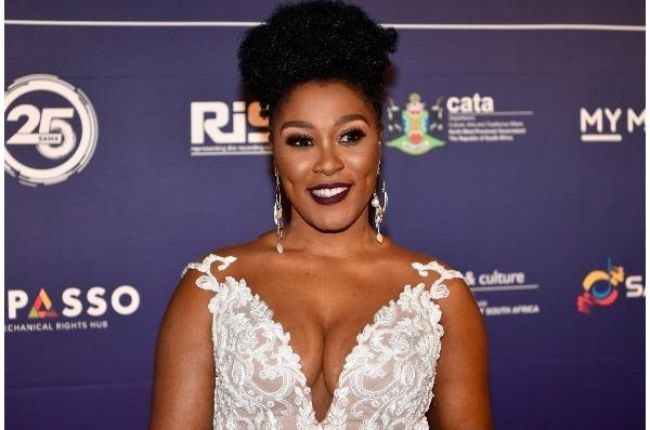
Consent in relationships can seem like a grey area to many.
Lady Zamar, real name Yamikani Janet Banda, and Jabulani “Sjava” Hadebe, were trending again on social media when the issue of their court case resurfaced.
Lady Zamar accused Sjava of allegedly sexually assaulting her at a hotel in Thohoyandou, Venda, after a concert in 2017 while they were dating. She opened a case of rape against him at a police station in Limpopo and the case was later passed to the National Prosecuting Authority (NPA) in 2020.
NPA spokesperson Mashudu Malabi-Dzhangi told IOL: "The state declined to prosecute the case because it believed the facts or evidence do not support a successful prosecution."
After the case was withdrawn, trolls started targeting the Love is Blind hitmaker, alleging she had falsely accused a man of rape. But, the singer maintains her position and continues to defend herself online.
In a series of Twitter posts, Lady Zamar writes: “Why do you guys hate me so much? How have I become such an easy target for you guys? You guys don’t know me, or my full story and you don’t know why I've kept quiet for such a long time … you guys have no idea how you break a person”.
where was it proven it was false..insufficient evidence and false aren’t the same thing though
— Lady Zamar (@Lady_Zamar) July 16, 2023
READ MORE | Fans comfort grieving Nadia Nakai - 'Take it one day at a time'
While Lady Zamar's case docket was withdrawn by the director of public prosecutions at court, the conversations about her accusation against her former boyfriend resurfaces the topic of what consent means in sexual relationships.
According to an article by Mkwakha Indvodza for Sonke Gender Justice, "Consent is permission for something to happen or agreement to do something. This implies that there should be a positive and affirmative ‘YES’ for something to happen, not the absence of a 'NO'."
The meaning of consent has many layers in it, which also includes the freedom to withdraw it.
The Planned Parenthood organisation expresses this with the acronym FRIES, which stands for the following:
Freely given: Consenting is a choice you make without pressure, manipulation, or under the influence of drugs or alcohol.
Reversible: Anyone can change their mind about what they feel like doing, anytime. Even if you’ve done it before and even if you’re both naked in bed.
Informed: You can only consent to something if you have the full story. For example, if someone says they’ll use a condom and then they don’t, there isn’t full consent.
Enthusiastic: When it comes to sex, you should only do stuff you WANT to do, not things that you feel you’re expected to do.
Specific: Saying yes to one thing (like going to the bedroom to make out) doesn’t mean you’ve said yes to others (like having sex).
Speaking to TRUELOVE, clinical psychologist Mohube Maswi says giving and communicating consent is an important part of boundary setting in relationships.
"The assumption people make is that their partners automatically give them consent by simply being in a relationship with them hence many struggle to understand how sexual assault/rape can happen when people are in a relationship."
While psychologist Gorata Chengeta states that when it comes to consent in romantic relationships, being in a relationship does not mean that asking for and receiving consent is no longer needed. Consent is important regardless of what kind of relationship people are in.
Whether you’ve just met someone or have been with your partner for a long time, consent is imperative, Gorata says, and adds to practice asking for and obtaining consent is to recognise people's bodily autonomy, which is something that applies to everyone, from adults to children.
"Both parties in a relationship have to make sure that they have consent for physical intimacy, sexual intimacy and other types of interactions. Consent is not only limited to physical and sexual actions."
According to Very Well Mind, consent is necessary so if you’re getting intimate with someone, sharing your respective boundaries and having them acknowledged and respected is important, as is immediately honouring a "no" in response to anything you or they don't want to do at any time during the encounter.
Mohube echoes a point from the Planned Parenthood organisation saying consent can only be communicated voluntarily and explicitly, adding that the individual consenting should not be manipulated or pressured into consenting. If an individual’s non-verbal communication and facial expressions are not congruent with their verbal communication, then it is likely that they are not freely consenting.
Mohube concludes, "Consent cannot be given by individuals who are intoxicated, unconscious or underage, the individual giving consent should be able to communicate freely and clearly. There are no blurred lines when it comes to consent, people simply use excuses in order to rationalise and normalise abusive and manipulative behaviours in relationships ".











